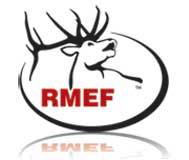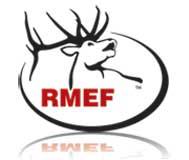
 Montana Fish, Wildlife and Parks is the recipient of a $50,000 grant from the Rocky Mountain Elk Foundation, to assist in implementing its wolf management plan. Funding will go toward deploying GPS collared wolves to help refine the Patch Occupancy Model for estimating wolf numbers and number of packs.
Montana Fish, Wildlife and Parks is the recipient of a $50,000 grant from the Rocky Mountain Elk Foundation, to assist in implementing its wolf management plan. Funding will go toward deploying GPS collared wolves to help refine the Patch Occupancy Model for estimating wolf numbers and number of packs.
The Rocky Mountain Elk Foundation awarded $50,000 in grant funding to Montana Fish, Wildlife and Parks (FWP) and Wildlife Services to assist Montana with its wolf management plan implementation.
“RMEF stands behind the North American Model of Wildlife Conservation which calls for the management of all species so their populations will be sustained forever,” said David Allen, RMEF president and CEO. “Predator management is a key principle in the model. And in Montana, we have a wolf population that far exceeds minimum objectives so we need to obtain more data to enhance the science of estimating wolf numbers so we can have more accurate information to assist in overall effective management.”
The funding goes toward additional collaring for wolves in order to expand the science related to wolf pack locations, size and home ranges. More specifically, GPS collars will be deployed to help refine the Patch Occupancy Model for estimating wolf numbers and number of packs. The expectation is to use the modeling in conjunction with harvest surveys to have a less labor-intensive method of estimating wolf populations.
With the onset of hunting seasons, wolf packs seem to be smaller in size yet the number of breeding pairs reportedly increased from a year ago. The goal of this research utilizing collars is to gain a better understanding of the new population dynamics of wolves in a hunted population.
Montana reported a 2014 minimum wolf population of 554 animals but biologists maintain the actual on-the-ground count is 27 to 37 percent higher. If you do the math, that places Montana’s wolf population somewhere between 705 to 760 which is still more than 400 percent above minimum objectives.
“The bottom line is it’s extremely difficult to manage wolves toward a given objective unless managers know how many wolves there are on the landscape. This grant funding will help FWP determine just that,” added Allen.
RMEF supports state-regulated hunting and trapping as preferred tools of wolf management. RMEF also remains committed to learning more about wolves and their effect on elk and other prey through research efforts. In the last three-plus years, RMEF awarded approximately $300,000 in grants specifically for wolf management.
About the Rocky Mountain Elk Foundation:
Founded over 30 years ago, fueled by hunters and a membership of more than 205,000 strong, RMEF has conserved more than 6.6 million acres for elk and other wildlife. RMEF also works to open and improve public access, fund and advocate for science-based resource management, and ensure the future of America’s hunting heritage. Discover why “Hunting Is Conservation™” at www.rmef.org or 800-CALL ELK.


